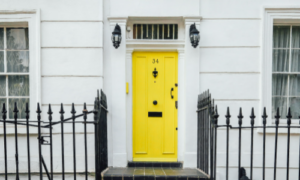 Leasehold – buying, selling, and extensions
Leasehold – buying, selling, and extensions
Buying or selling leasehold property is a little more complex than buying a freehold. This means more things that you need your conveyancer to do and potentially a longer conveyancing process.
At E A Harris though, we understand how leaseholds work. In the century we’ve supported Flintshire (Sir y Fflint) communities, we’ve helped thousands of local people buy and sell leasehold properties.
More than anything else, we understand how important it is to keep you up-to-date with everything that is going on.
To discuss any of our services, please either call us on 01244 917 822 or complete a Free Online Enquiry.
“We were quite happy with the service you provided. With being local, we were able to visit whenever necessary, which we appreciate, and all phone calls were dealt with by yourselves in a friendly and helpful manner.”
(Mr & Mrs V – Property transaction)
Not only do we handle every legal requirement and aspect of the property sale or purchase of your leasehold, we stay in touch to keep you fully informed every step of the way:
Understanding The Difference Between Freehold And Leasehold
There are two main ways you can own property in the UK – “freehold” and “leasehold”. Understanding how the terms differ is vital:
- Freehold – as a freeholder, you own the building and the land it rests on.
- Leasehold – as a leaseholder, you are essentially buying a lease on (usually) part of a property (such as a flat within a larger building) for a set period (usually at least 90 years).
Most people would say that you are a homeowner in both cases. But as a leaseholder, what you really own is the lease on a property. You don’t really own the property itself or the land it sits on.
You are also likely to need to pay certain service fees and what is called “ground rent” to the freeholder of the property. (Note that if you are buying a leasehold property after April 2023, you should already be exempt from paying ground rent.)
Currently, around 1 in 5 UK properties are owned as leaseholds. But because leaseholders have to pay those extra fees, the system is coming under increasing attack for inherent unfairness. In fact, many developers have started to cut back or outright stop selling leasehold properties.
However, despite occasional policy pushes to the contrary, the leasehold system is unlikely to completely go away just yet. This makes it important to understand the type of property you are buying.
Buying A Leasehold Property
Buying a leasehold property complicates the conveyancing process slightly. This is because you will want your solicitor to complete a number of additional checks on top of the usual searches.
For instance, when operating as conveyancing solicitors for our local clients seeking to buy a leasehold property, we will usually want to find out:
- Who exactly owns the freehold?
- Is there a property management company involved?
- What parts of the building can be used? Are there any restrictions on property use?
- How much are the service and maintenance fees (and any ground rent still applicable)?
- How long is the lease? How long is left on it?
It’s always our aim to empower you to go into the act of buying a home or other leasehold property fully informed as to the situation any lease puts you in.
Selling A Leasehold Property
Lease length is the defining factor governing how easy to sell and valuable a leasehold property is usually judged to be. That is to say, what matters most is how long is left on the lease.
If there are fewer than 80 years left, most mortgage lenders start to become less happy to grant a mortgage to your potential buyers. This can mean a buyer needs to get a larger deposit together or is simply unable to buy.
If you want to make your leasehold property a more attractive or achievable prospect for buyers, your best solution may be to extend the lease. You might also choose to buy the freehold.
Both options can be good or bad and their value will differ depending on your specific property. With our experience, we can be your guide through the best way to speed up selling a leasehold property and how to maximise the value you get from it.
Leasehold Extensions
For leaseholds, common terms are anywhere between 90 and 999 years. But all property leases are finite. Eventually, they run out. At least, in theory.
The good news is that if you have owned the leasehold for two years or more, it is your statutory right to extend the length of the lease.
If you are trying to make a leasehold property more likely to sell quickly and for the highest value, this is often a good strategy.
Equally, if you have a leasehold and simply want to continue living in the property, a leasehold extension is probably the right move. This can prove simple or complicated. Usually, getting some expert legal advice as to your current situation is the place to start.
Why Use E A Harris?
For over a hundred years, local people in Shotton, Connah’s Quay, Queensferry, Ewloe, Hawarden and Buckley have turned to us to help them with buying and selling leasehold properties.
As the first law firm in North Wales to gain LEXCEL accreditation from the Law Society, we follow Practice Approved Standards and Case Management Systems. We also know how important it is to stay in touch with you about the process.
Get In Touch Today.
Please call us today on 01244 917 822 or complete a Free Online Enquiry to let us know a little about your situation. Get more information about how we’ll help you for FREE and with zero obligation.
